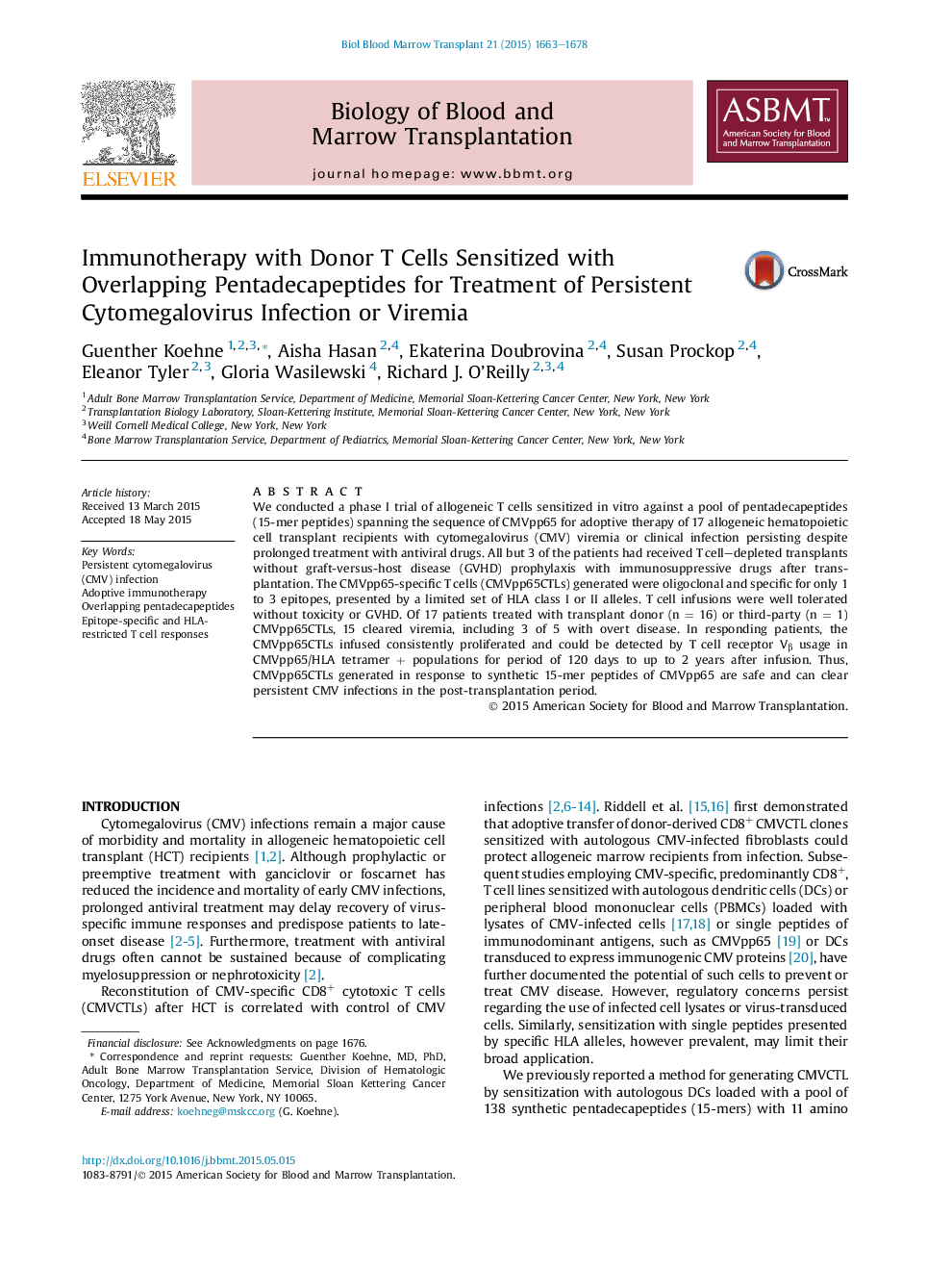| Article ID | Journal | Published Year | Pages | File Type |
|---|---|---|---|---|
| 2101839 | Biology of Blood and Marrow Transplantation | 2015 | 16 Pages |
-Adoptive transfer of donor-derived cytomegalovirus cytotoxic T cells for persisting cytomegalovirus viremia.-CMVpp65-specific T cells sensitized with 15-mers peptides spanning CMVpp65 are safe and effective.-CMVpp65-specific T cells exhibit specificity for 1 to 3 epitopes presented class I and II HLA alleles.
We conducted a phase I trial of allogeneic T cells sensitized in vitro against a pool of pentadecapeptides (15-mer peptides) spanning the sequence of CMVpp65 for adoptive therapy of 17 allogeneic hematopoietic cell transplant recipients with cytomegalovirus (CMV) viremia or clinical infection persisting despite prolonged treatment with antiviral drugs. All but 3 of the patients had received T cell–depleted transplants without graft-versus-host disease (GVHD) prophylaxis with immunosuppressive drugs after transplantation. The CMVpp65-specific T cells (CMVpp65CTLs) generated were oligoclonal and specific for only 1 to 3 epitopes, presented by a limited set of HLA class I or II alleles. T cell infusions were well tolerated without toxicity or GVHD. Of 17 patients treated with transplant donor (n = 16) or third-party (n = 1) CMVpp65CTLs, 15 cleared viremia, including 3 of 5 with overt disease. In responding patients, the CMVpp65CTLs infused consistently proliferated and could be detected by T cell receptor Vβ usage in CMVpp65/HLA tetramer + populations for period of 120 days to up to 2 years after infusion. Thus, CMVpp65CTLs generated in response to synthetic 15-mer peptides of CMVpp65 are safe and can clear persistent CMV infections in the post-transplantation period.
